#something about it appeals to me
Text
i know i keep saying it in like a hopeful half-memeing way, that we could have pete & ted on stage together if nick played pete and joey played ted, but like. for real just imagine it for a moment. imagine the height difference. imagine how adorable. like
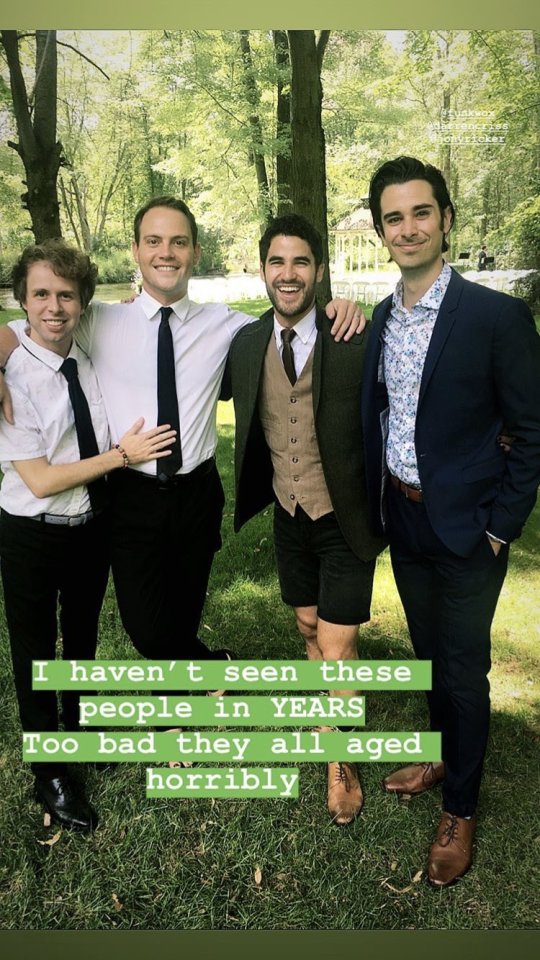
ignore joe & darren in this picture for a second. that is ted and his baby brother. think about it. think about the visual storytelling of these people playing brothers with such a big age gap between them. i just think it would be lovely
#idk just#its a shame you cant really get a sense of the height gap in their scene in abby camp#i dont know how to explain this#it just makes me happy like Look At This#it would be so fun#starkid#hatchetfield#spankoffskis#ted spankoffski#peter spankoffski#am i being crazy rn. i KNOW that height and age dont really work like this#but ???????????????????????#something about it appeals to me
136 notes
·
View notes
Text

learned something about myself lately
#i dont think its even the fact almost all my characters are somewhat beasts in one way or another. i just#really like tails and wish i had one myself#and then my oc designs are a little tame theyre mostly human shaped with animal features. but they always have tails#my eyes have recently been opened to the appeal of long whiplike unicorn tails.. so flowy and curly#something about the tuft at the end being long and swirly just does something for me..#maybe it would make sense to change auggies tail shape so it looks like a meteor. her design is mainly pink with hot pink accent#so it would be cool to use that and orange to make it look like a fire meteor.. maybe itll help complement the blue/green in her design#head full of ocs today so expect a ramble later#if i had a tail i think it would be long with a kink. so it kind of folds over once but not in a curl#when it wags its kind of a swaying motion. i have thought about this a normal amount#yapping
9K notes
·
View notes
Text
None Of You Know What Haiku Are
I'm going to preface this by saying that i am not an expert in ANY form of poetry, just an enthusiast. Also, this post is... really long. Too long? Definitely too long. Whoops! I love poetry.
If you ask most English-speaking people (or haiku-bot) what a haiku is, they would probably say that it's a form of poetry that has 3 lines, with 5, and then 7, and then 5 syllables in them. That's certainly what I was taught in school when we did our scant poetry unit, but since... idk elementary school when I learned that, I've learned that that's actually a pretty inaccurate definition of haiku. And I think that inaccurate definition is a big part of why most people (myself included until relatively recently!) think that haiku are kind of... dumb? unimpressive? simple and boring? I mean, if you can just put any words with the right number of syllables into 3 lines, what makes it special?
Well, let me get into why the 5-7-5 understanding of haiku is wrong, and also what makes haiku so special (with examples)!
First of all, Japanese doesn't have syllables! There's a few different names for what phonetic units actually make up the language- In Japanese, they're called "On" (音), which translates to "sound", although English-language linguists often call it a "mora" (μ), which (quoting from Wikipedia here) "is a basic timing unit in the phonology of some spoken languages, equal to or shorter than a syllable." (x) "Oh" is one syllable, and also one mora, whereas "Oi" has one syllable, but two moras. "Ba" has one mora, "Baa" has two moras, etc. In English, we would say that a haiku is made up of three lines, with 5-7-5 syllables in them, 17 syllables total. In Japanese, that would be 17 sounds.
For an example of the difference, the word "haiku", in English, has 2 syllables (hai-ku), but in Japanese, はいく has 3 sounds (ha-i-ku). "Christmas" has 2 syllables, but in Japanese, "クリスマス" (ku-ri-su-ma-su) is 5 sounds! that's a while line on its own! Sometimes the syllables are the same as the sounds ("sushi" is two syllables, and すし is two sounds), but sometimes they're very different.
In addition, words in Japanese are frequently longer than their English equivalents. For example, the word "cuckoo" in Japanese is "ほととぎす" (hototogisu).
Now, I'm sure you're all very impressed at how I can use an English to Japanese dictionary (thank you, my mother is proud), but what does any of this matter? So two languages are different. How does that impact our understanding of haiku?
Well, if you think about the fact that Japanese words are frequently longer than English words, AND that Japanese counts sounds and not syllables, you can see how, "based purely on a 17-syllable counting method, a poet writing in English could easily slip in enough words for two haiku in Japanese” (quote from Grit, Grace, and Gold: Haiku Celebrating the Sports of Summer by Kit Pancoast Nagamura). If you're writing a poem using 17 English syllables, you are writing significantly more content than is in an authentic Japanese haiku.
(Also not all Japanese haiku are 17 sounds at all. It's really more of a guideline.)
Focusing on the 5-7-5 form leads to ignoring other strategies/common conventions of haiku, which personally, I think are more interesting! Two of the big ones are kigo, a season word, and kireji, a cutting word.
Kigo are words/phrases/images associated with a particular season, like snow for winter, or cherry blossoms for spring. In Japan, they actually publish reference books of kigo called saijiki, which is basically like a dictionary or almanac of kigo, describing the meaning, providing a list of related words, and some haiku that use that kigo. Using a a particular kigo both grounds the haiku in a particular time, but also alludes to other haiku that have used the same one.
Kireji is a thing that doesn't easily translate to English, but it's almost like a spoken piece of punctuation, separating the haiku into two parts/images that resonate with and add depth to each other. Some examples of kireji would be "ya", "keri", and "kana." Here's kireji in action in one of the most famous haiku:
古池や 蛙飛び込む 水の音
(Furu ike ya kawazu tobikomu mizu no oto)
(The old pond —
A frog jumps in
The sound of the water.)
You can see the kireji at the end of the first line- 古池や literally translates to "old pond ya". The "ya" doesn't have linguistic meaning, but it denotes the separation between the two focuses of the haiku. First, we are picturing a pond. It's old, mature. The water is still. And then there's a frog! It's spring and he's fresh and new to the world! He jumps into the pond and goes "splash"! Wowie! When I say "cutting word", instead of say, a knife cutting, I like to imagine a film cut. The camera shows the pond, and then it cuts to the frog who jumps in.
English doesn't really have a version of this, at least not one that's spoken, but in English language haiku, people will frequently use a dash or an ellipses to fill the same role.
Format aside, there are also some conventions of the actual content, too. They frequently focus on nature, and are generally use direct language without metaphor. They use concrete images without judgement or analysis, inviting the reader to step into their shoes and imagine how they'd feel in the situation. It's not about describing how you feel, so much as it's about describing what made you feel.
Now, let's put it all together, looking at a haiku written Yosa Buson around 1760 (translated by Harold G. Henderson)
The piercing chill I feel:
my dead wife's comb, in our bedroom,
under my heel
We've got our kigo with "the piercing chill." We read that, and we imagine it's probably winter. It's cold, and the kind of cold wind that cuts through you. There's our kireji- this translation uses a colon to differentiate our two images: the piercing chill, and the poet stepping on his dead wife's comb. There's no descriptions of what the poet is feeling, but you can imagine stepping into his shoes. You can imagine the pain he's experiencing in that moment on your own.
"But tumblr user corvidcall!" I hear you say, "All the examples you've used so far are Japanese haiku that have been translated! Are you implying that it's impossible for a good haiku to be written in English?" NO!!!!! I love English haiku! Here's a good example, which won first place in the 2000 Henderson haiku contest, sponsored by the Haiku Society of America:
meteor shower . . .
a gentle wave
wets our sandals
When you read this one, can you imagine being in the poet's place? Do you feel the surprise as the tide comes in? Do you feel the summer-ness of the moment? Haiku are about describing things with the senses, and how you take in the world around you. In a way, it's like the poet is only setting a scene, which you inhabit and fill with meaning based on your own experiences. You and I are imagining different beaches, different waves, different people that make up the "our" it mentioned.
"Do I HAVE to include all these things when I write haiku? If I include all these things, does that mean my haiku will be good?" I mean, I don't know. What colors make up a good painting? What scenes make up a good play? It's a creative medium, and nobody can really tell you you can't experiment with form. Certainly not me! But I think it's important to know what the conventions of the form are, so you can appreciate good examples of it, and so you can know what you're actually experimenting with. And I mean... I'm not the poetry cops. But if you're not interested in engaging with the actual conventions and limitations of the form, then why are you even using that form?
I'll leave you with one more English language haiku, which is probably my favorite haiku ever. It was written by Tom Bierovic, and won first place at the 2021 Haiku Society of America Haiku Awards
a year at most . . .
we pretend to watch
the hummingbirds
Sources: (x) (x) (x) (x) (x) (x)
Further reading:
Forms in English Haiku by Keiko Imaoka
Haiku: A Whole Lot More Than 5-7-5 by Jack
How to Write a Bad Haiku by KrisL
Haiku Are Not a Joke: A Plea from a Poet Who Has Had It Up to Here by Sandra Simpson
Haiku Checklist by Katherine Raine
#poetry#haiku#writing#literature#anime life#long post#i want to apologize but i had to get something off my chest#and the thing was. i love haiku#and when i see posts on here about haiku. i get so angy.#well ok i really get more disappointed bc nobody is really engaging with the form on its own terms#anyway i hope you enjoy some of my favorite haiku because theyre in there!!!!!#i didnt really get into the history of haiku. and i also did not get into why i got really into it#but i will say that i was really inspired by Jacob Geller's video A Thousand Ways of Seeing a Forest#which is a lot about translation#(which i mean. as an interpreter AND a poetry-enjoyer. really appealed to me lol)
10K notes
·
View notes
Text

this is yaoi to you freaks, right?
#art#dont hug me im scared#dhmis#dhmis yellow guy#dhmis duck#dhmis red guy#uhhh#originally was gonna do this with Actual Human Characters#but reconciling my deeply unsexy art style with something resembling sex appeal was Not Working#i was cackling thinking about how under reds bodysuit is another bodysuit. same size. with lingerie#shitpost#don't hug me i'm scared
573 notes
·
View notes
Text
FinFin has been thinking thoughts [Audio recommended]
#you love finfin 🔪#he is your best friend#come and see him#Adore him fr. what a little guy#but also he gives me feelings about the past and the future and everything that's going on in between#and the relationship that people have with art and technology and their ideas for the future#and why they make things and for who#like yes. ok. finfin was just capitalizing on a trend#but even in doing that they made something really unique and charming with lasting appeal#he's more than just a marketable product... and he was even then#he was a genuine curiosity for the tech featured in the game#it doesn't actually work the way it pretends to 😂 but still. The effort was there#fin fin#finfin#fin fin on teo the magic planet#windows 98#windows xp#microsoft agent#I should have spent longer cleaning this up. It's still pretty rough#but it's one of those things you can tweak forever and never be happy with so :/
3K notes
·
View notes
Text

#pickle pontificates#they just have a very good and specific flavor#a lot of the stuff I've seen and resonated with the most falls into this category I've noticed#not even like I'm seeking it out it just keeps happening#i like the action and the goofiness you tend to find in shonen stuff#but i think there's something about the way women tend to write characters and emotions that appeals to me personally#not that i think anyone's going to find this that would misinterpret it but obviously it's not like men can't write characters/emotions#that's what i like so much about haikyuu#which was done by a guy as far as anyone knows#and i also love mp100 if you couldn't tell#right now this is about#fma#fmab#tbhk#noragami#but it can be about whatever you want it to and I'm sure it'll be about more stuff for me in the future
1K notes
·
View notes
Text
i would be nothing without the elite literary salon of rosekiller bloggers whose feeds are just sexualized surgical gore followed by an anaïs nin quote & then perhaps an image of like a loose handful of teeth or something. barty crouch junior fans grab your freudian sexual hangups!!!! evan rosier fans grab your scoliosis!!!!!!!!!
#i’m thinking of me & iva & jones specifically actually.#there is just something so appealing about evan rosier as a brittleboned virgin with a hacksaw. and his beaten dog of a husband#t
143 notes
·
View notes
Text
oh noo. I got a message in my inbox asking about Task Force headcanons, and now it's disappeared :') but I made these drawings to answer their questions– so I'm going to post it anyway!
long story short, I love the Task Force with all my heart, but I don't actually feel like I have many personal headcanons for them since I prefer to stick to canon as much as possible when writing fic. which is a really boring answer!! but I do have a few here and there, as well as just general thoughts on each character. so here they are!
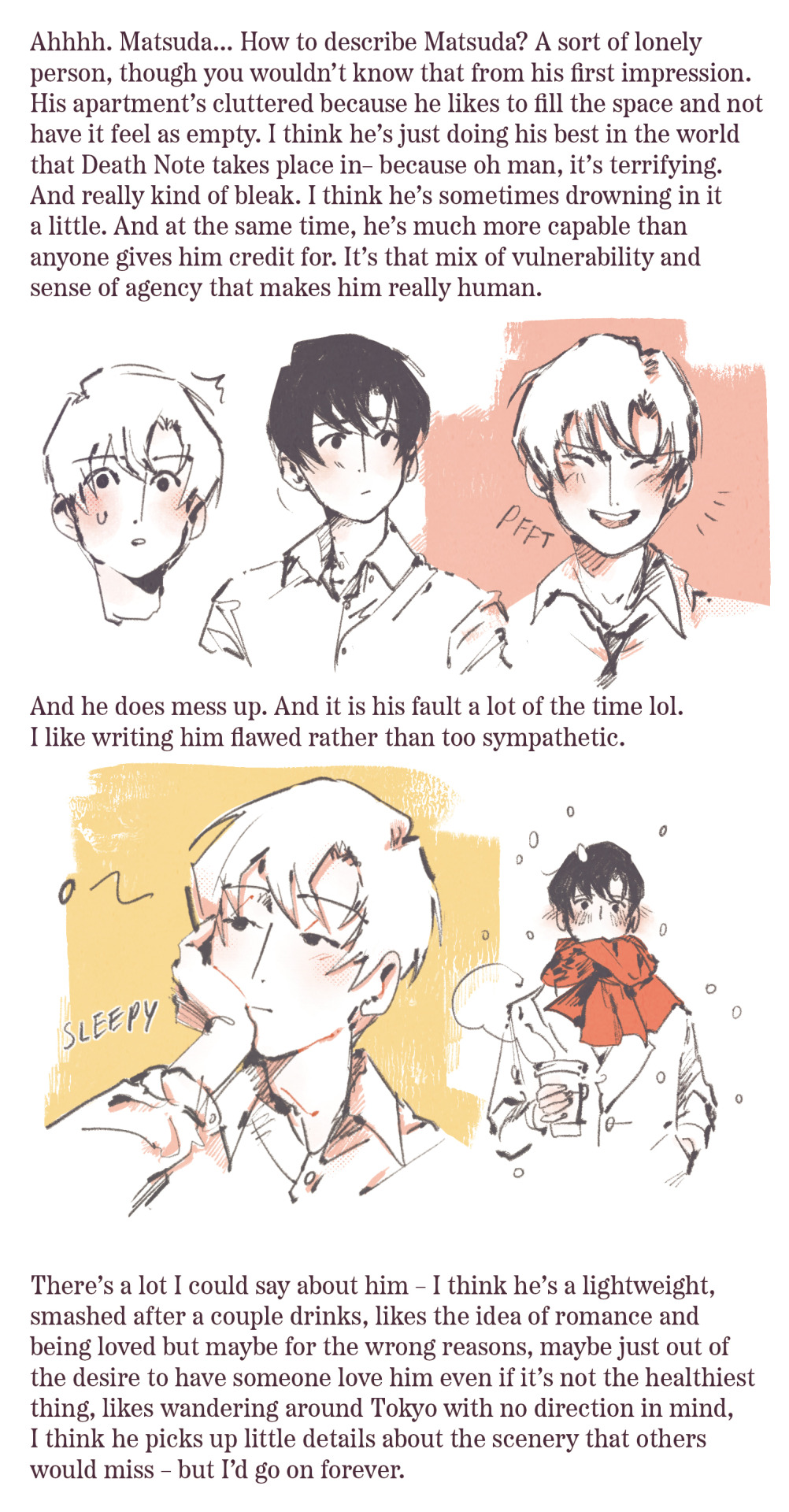
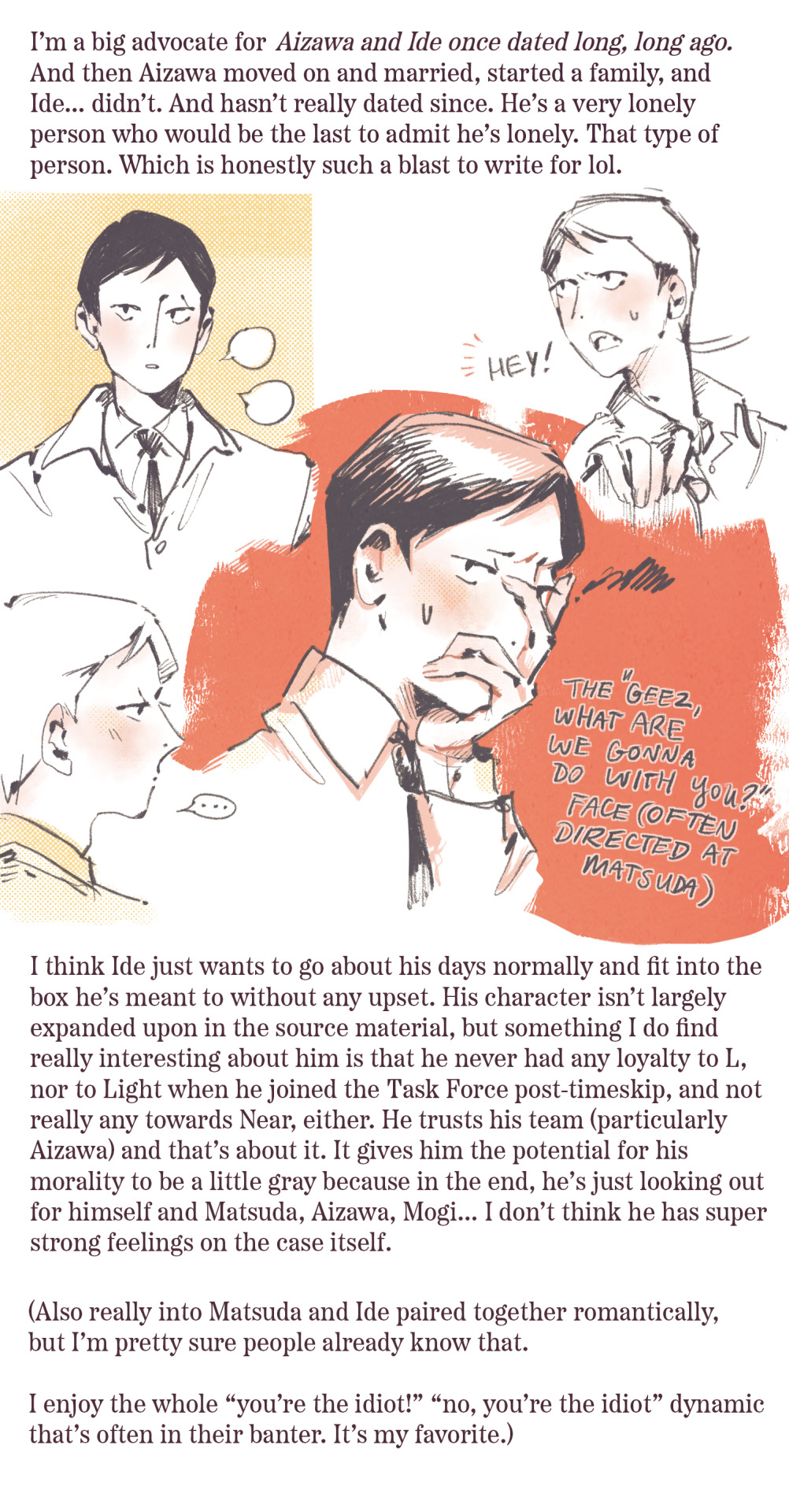
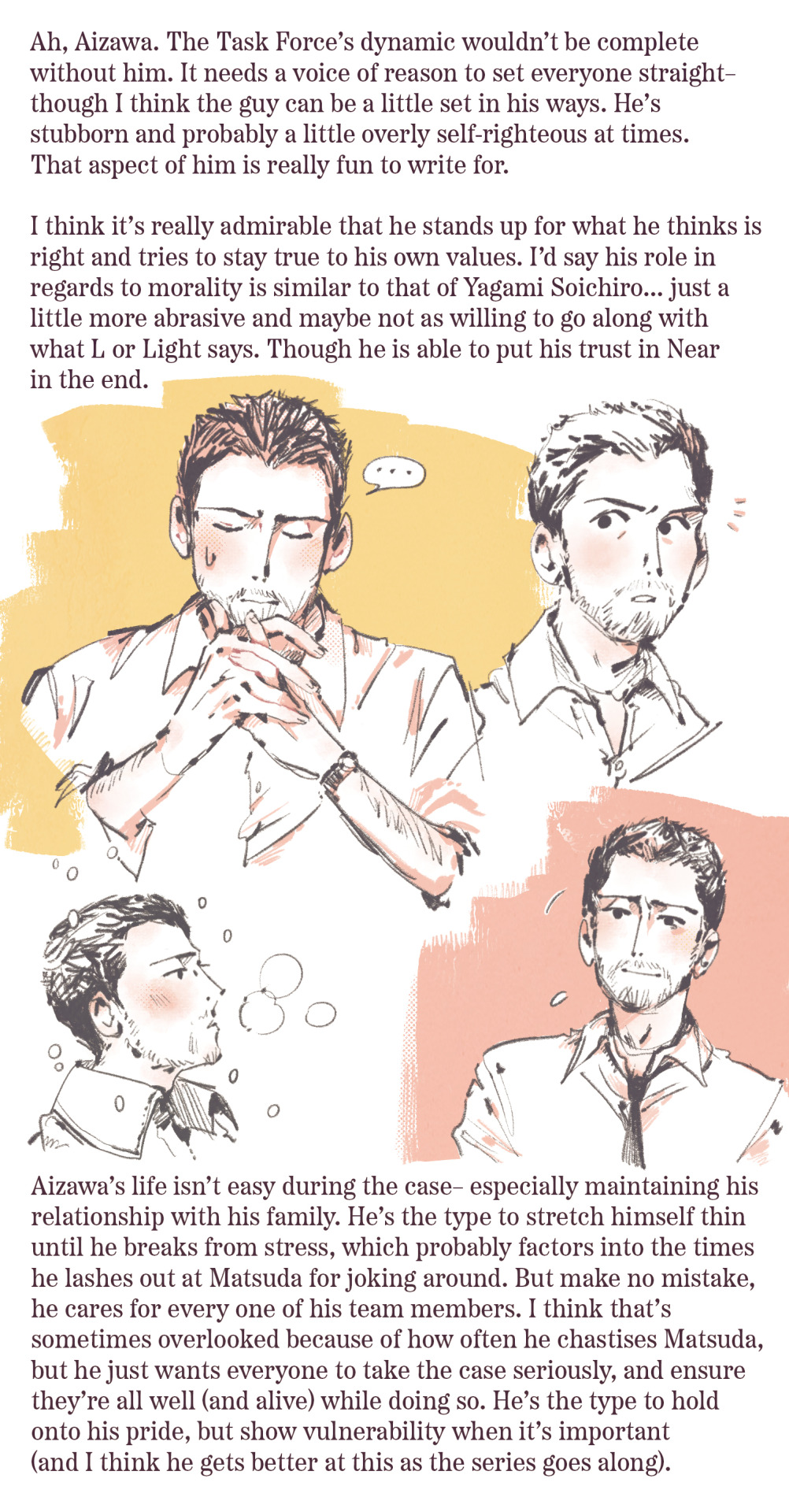
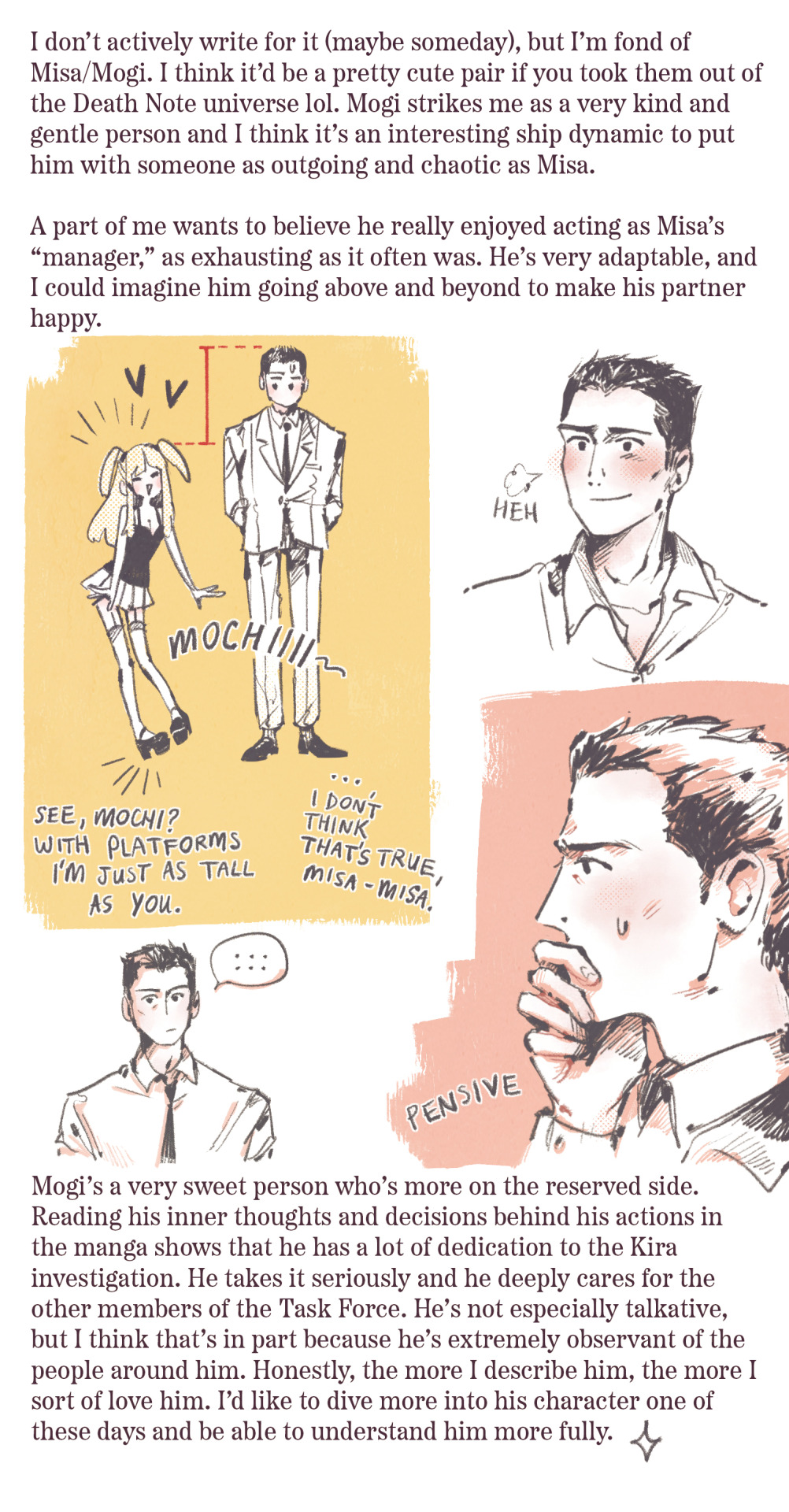
#death note fanart#touta matsuda#hideki ide#shuichi aizawa#kanzo mogi#kira task force#death note#death note headcanons#my art#I have a lot more thoughts but I didn't wanna make this too long!!#I just...... I really love the task force you guys#it's something about the non-super geniuses just trying to survive and stay afloat in the scary world that is death note#that is super appealing to me#they're just doing their best
392 notes
·
View notes
Text
And this too, is vettonso to me:



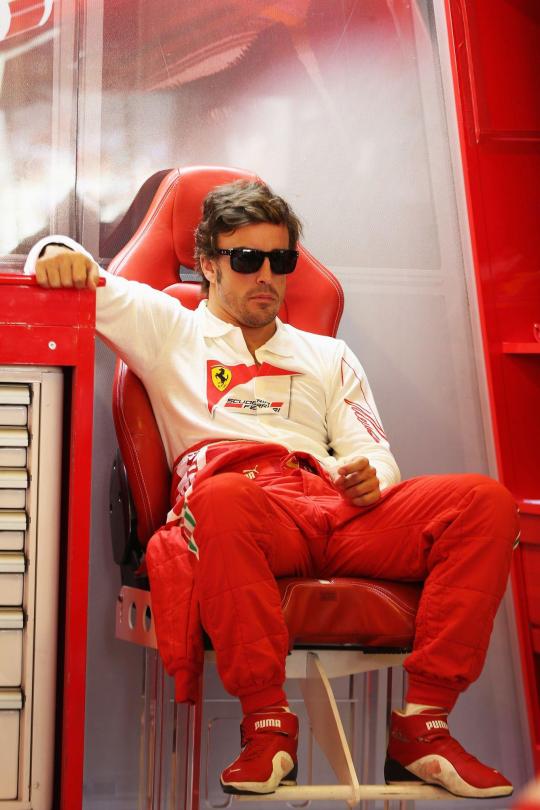

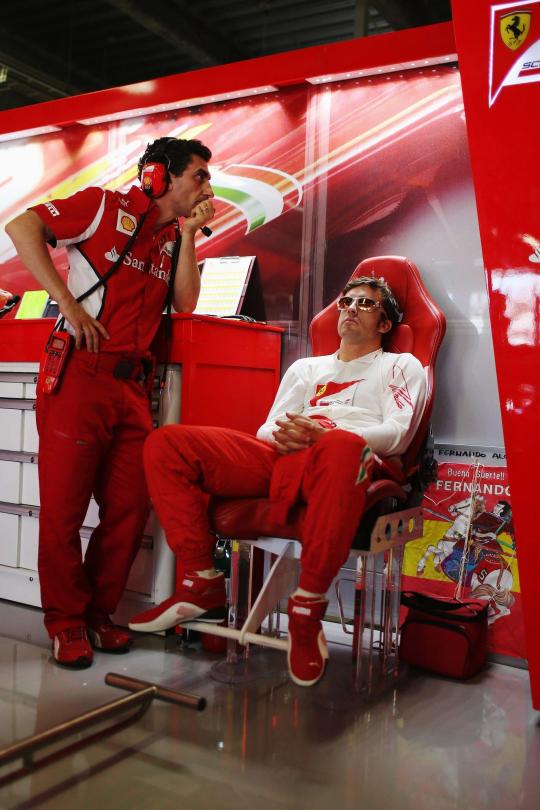


#theres just something to me about how fernando has a special designated chair#and seb is always curled up on the countertops#i already went into this in the tags of my prev post so yeah#lol though i will say all the seb pics are 2011(+ one 2009) and all the nando ones are 2012 which is annoying(to me only)#UGH AND ALSO THE NAVY BLUE AND BRIGHT RED DIFF MAKES ME SO !!!!!!!#i am such a sucker for opposing colors. it just really appeals to something in me#and like the fact that the rbr suit has red accents on it as well#and both have yellow 💛 and both have animal motifs#anyways when i draw them fucking in the chair will you still be with me-#huh what who said that#i saved these pictures for normal reasons!! perfectly normal. shut up#f1#formula 1#sebastian vettel#fernando alonso#vettonso
174 notes
·
View notes
Text
I’m gonna try to say this without sounding weird… okay?
Another reason why I like Barbatos so much as an Archon is that he is the type of god I would want for me.
He’s so human-like that it’s easy to forget he’s a god. He actively interacts with humans regularly to understand their culture, and he encourages “rest” and “joy” in life through a strong drinking culture and “whimsical” lifestyle.
It really is about finding joy in an everyday life.
Not only that, but he actively participates in putting on events to further this motto, most recent case scenario: The Poetry Event!
It’s these small things that he partakes in that encourages his people to grow and learn new things/try new things while—most importantly—having fun (!) that portray a god that is FOR the people first and foremost. Remembering that even though it’s simple (ish. Poetry is hard, sometimes, to me LOL), it is something new and exciting and breaks that monotonous life cycle.
He’s also a god that doesn’t “hover”; he’s there if you really need him but, otherwise, you have to fight your own battles. You need to grow; you need to realize your own strength by not having him around all the time.
Sure, he pokes fun at himself in these instances, sleeps so often that he really isn’t there all the time, is a drinker, etc., that it’s almost hard to see him as a god at all. He is so human.
You’re only reminded he’s a god when you realize he’s had a whole life, and several lives, really, before this one.
So, perhaps the reason he’s so appealing as a god is because he doesn’t really act like one at all. He acts like a “good” and humble human.
I suppose those that you find similarities in are what attracts you, so maybe that plays a part in Venti’s appeal. (Aka his human similarities)
On the other hand, Zhongli is probably best in encompassing the picture of a god: strong, capable, ready to step in but also ready to test his people “if they’re worthy” of standing on their own.
Ei is… a god in the sense that she’s feared. Untouchable. Hard to see any likeness in her to a human, so, she is, indeed, separate from her people.
Nahida holds knowledge so unfathomable and intangible that she is otherworldly, but due to her age, she is hard to compare to an “otherworldly god” and more seems like “another power”/“oracle”/“great other being” to seek out advice but to never quite “worship”—or at least, that’s what the Archon quest felt like to me.
Focalors is… well, she is painted to be the one imitating a god—down to the dotted ‘i’ where she puts on a bravado with none of the power to back it up. By all means, she should be the feared god, the powerful and interesting one that has an iron hand and all-wisdom—as if she plays both Nahida and Zhongli at once—but her power is that of a Venti, an everyday man that speaks ostentatious language to intimidate but never follows up on his word—for now. She’s just getting started, after all.
(Note: haven’t played the continuance of the Archon Quest at this time)
I guess it depends on how you define a god, which is why these portrayals are all so unique. It would then also depend on each individual to pick which one is the most appealing god to you—a protector, one with wisdom, a feared god, one that is active and fascinating, or—the one that blends in with its people.
#this was inspired by someone saying ‘Venti is a god I’d worship’#and while I felt weird putting it that way#there is something so appealing about Mondstadt and its god (Venti bias here) that made me to love this region and archon the most#my type is the ‘gentle god’ archetype#also short men.#anyway#venti#zhongli#nahida#focalors#furina#it’ll take me a minute to switch over to her name#genshin impact#genshin archons#my rambles or something#truly these are just rambles#aka if I was iseki’d into genshin
116 notes
·
View notes
Note
Hello!! I came across a couple of your animals with pride flags series (idk what you're actually calling it lol) and I wanted to request an intersex blue-ringed octopus (I'm not intersex myself tho lol, just thought it might look neat)

Oooh, this was a fun one! Thank you for the request! 🐙
#ask#art request#art#my art#intersex#blue-ringed octopus#octopus#queer art#animal art#digital art#lgbtqia+#lgbtq+#critter series#someone requesting an animal that matches the colour/look of the pride flag with it? *wipes tear* brilliant. you understood the assignment#like i love doing people's favourite animals with their flag but there's just something so fun about animals that match the colour scheme#or at the very least are very close to matching it. it makes the designs so appealing because it looks more natural#and it's always nice doing flags i haven't done before#the blue-ringed octopus was an excellent choice for the intersex flag. for obvious reasons. i also think it looks very neat :)#(the back legs are doing a very very good job of being hidden behind the head and have nothing to do with me forgetting about them)#i saw one when i was a kid. i was in a rock pool and as I got out it swam across. it was a very 'woah. i could have died just now' moment#but then again close encounters with deadly animals are basically a rite of passage for kids in australia#id in alt
58 notes
·
View notes
Text
*ahem*
How would we feel about a smutty lil throwback Price one shot? Based on him and his lil wifey after he gets promoted to captain? And price realizes he has a bit of a thing for when you call him by his new rank? 👀👀👀
#one thing about me is I’m always gonna ask yall for approval before writing anything#because I’d hate to write something that wasn’t appealing to anyone lol#we’re not gonna look into that too deeply tho#captain john price#john price x reader#john price
48 notes
·
View notes
Text

ive never read her comics but i think she's got truckloads of swag
#cassandra cain#dc#cass cain#dc comics#comics#batfam#my art#ive never drawn her before... or any batfam art really#the comics dont appeal to me#but something about her design is kinda like awesome
116 notes
·
View notes
Photo


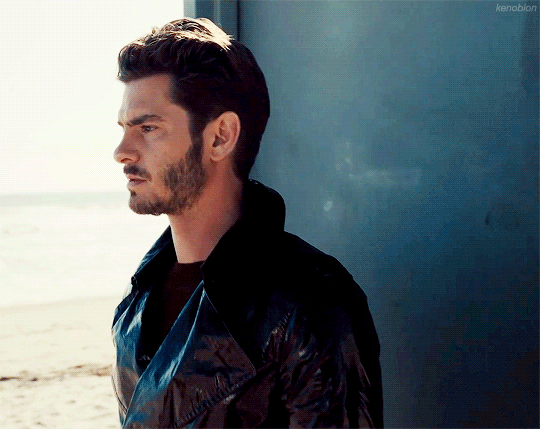


Andrew Garfield for GQ+Saint Laurent
#you know I had to do it#andrew garfield#my gifs#this video was a bit out there#but some of the themes mentioned in it (and the article) remind me of how Andrew talks about his mom#and upon realizing that it felt like the whole video made more sense#also I love how the article mentions how he loves both the skate/surf style and really formal attire#cause same#I love that kind of casual but trendy look#but also the idea of dressing in something incredibly swanky is so appealing#I wish someone would invite me to a fancy event and supply me with a really good suit#I just know it'd feel right#also the emotional depth Andrew has is incredible#it makes me wish to have a conversation about the way things are with him#ugh and he looks so good here too#he looks 100% like cuddle material in that sweater#please hmu anytime Andrew you beautiful being
644 notes
·
View notes
Text
I finished Super Paper Mario earlier today for the first time after 16 years of owning and adoring the game and
I have a question for any Limentio / Dimigi shippers out there.
Why
#I DONT GET IT#THE WAY YOU GUYS TALK ABOUT THEM MAKES ME THINK THERES SOMETHING MORE THAN JUST#‘DIMENTIO MANIPULATES AND USES LUIGI AND PRETENDS TO KILL HIM SEVERAL TIMES’#I DONT UNDERSTAND. WHAT IS THE APPEAL#DID PEOPLE REALLY WANT YAOI THAT BAD???#toxic yaoi??? i get toxic yaoi but THIS AINT GOT NO FLAVOR!! 😭#sooo romantic 😍 when my partner manipulates me and possesses me 😍#and uses my body to destroy the entire universe including my beloved sibling 😍#/SARCASM!!!!#the way they have ZERO chemistry too 😭😭 i cant#NO OFFENSE I GUESS. IM JUST LIKE. I GENUINELY DO NOT UNDERSTAND THIS SHIP#super paper mario#dimentio
43 notes
·
View notes
Text






happy 3rd birthday to the hottest thing bastille has ever done anyone but me x nightmares (24.08.2020)
#mine#bastille#i talk about bastille all the time irl but mentions of blond dan will not pass my lips#i am boygenius not strong enough#to this day i do not understand it#i dont usually like blond guys and hes basically wearing an emo hawaiian shirt#but ive seen this video so many times and every time i end up blushing and smiling to myself like a fucking teenager LORD#someones commented something like 'great cover dan has no sex appeal' on the youtube vid#and like first of all what a thing to comment absolutely hilarious#second like fair ig each to their own but like THIS is the video you chose to comment that on????#anyway anyone but me x nightmares u will always be famous lives were truly changed forever#i hope that one day u will be allowed on oph so we can have u on spotify#i am once again asking rockstille album when also like maybe dan should just bleach his hair again for it#idk would that be such a bad thing while were out here brainstorming just throwing some ideas out into the universe nothing serious idk
109 notes
·
View notes